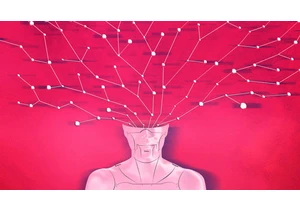In the first weeks of Donald Trump’s second term in office, Elon Musk has been busy seizing control of instruments of government power, causing many to wonder who is really in charge. “Elon Musk is President,” The Atlantic’s Jonathan Lemire declared. “There has never been a private citizen like him.”
Newly confirmed Treasury Secretary Scott Bessent recently granted Musk’s Department of Government Efficiency (DOGE) access to a highly sensitive computer system—described as a “a checkbook for the entire federal government”—that distributes trillions of dollars annually. Musk, flanked by a cadre of young engineers with no government experience, as Wired has reported, are hacking away at sensitive federal systems likely without proper security clearance.
Naturally, Musk and his ragtag child army have raised bright red flags around Washington. “So many of these things are so wildly illegal that I think they’re playing a quantity game and assuming the system can’t react to all this illegality at once,” Georgetown Law professor David Super told the Washington Post in response to Musk’s blitz on the federal government.
Democratic Senators Elizabeth Warren and Ron Wyden asked the Government Accountability Office on Tuesday to open an inquiry into Bessent’s granting DOGE access to the Treasury payment system.
In a separate letter sent to Bessent last week, Wyden wrote, “I can think of no good reason why political operators who have demonstrated a blatant disregard for the law would need access to these sensitive, mission-critical systems.”
But Wyden’s concern also highlighted another major conflict of interest that makes Musk’s powers worrying: his ties to China.
“I am concerned Musk’s enormous business operations in China—a country whose intelligence agencies have stolen vast amounts of sensitive data about Americans, including U.S. government employee data by hacking U.S. government systems—endangers U.S. cybersecurity and creates conflicts of interest that make his access to these systems a national security risk,” he wrote. Wyden cited a recent Chinese breach of the Treasury Department’s systems in which hackers accessed former Secretary Janet Yellen’s emails.
While most American companies do not—or cannot—operate in China, Musk’s Tesla certainly does. In 2024, the electric carmaker sold 657,000 cars in China, up 8.8% from the year before. It also operates massive car and battery manufacturing facilities in Shanghai. The company received “several unusual concessions” from the Chinese government, Wyden noted, letting Tesla operate independently without a joint venture with a Chinese partner, favorable loans, and “a discounted corporate tax rate of 15% in China, something that could change quickly if Musk were to anger the Chinese government.”
In January, Chinese Vice President Han Zheng met with Musk, urging Tesla and other U.S. companies to “seize the opportunity and share in the fruits of China’s development.” Musk vowed to “deepen investment cooperation with China.”
And with Musk helming the dissolution of the U.S. Agency for International Development (USAID), the agency in charge of foreign aid and assistance, critics have warned that America’s retreat could create pathways for China to expand its influence abroad. “The Trump administration has just put America last, while handing a gift to our biggest adversaries, notably China,” Michael Schiffer, former USAID assistant administrator in Asia, wrote in Just Security. “America’s alliances will suffer. U.S. partners will be at risk. And America’s enemies will rejoice.”
With the U.S. and China on the brink of exacerbating its ongoing trade war, the man running behind the scenes and fiddling with the bells, knobs, and whistles of the U.S. government has no electoral mandate, no real position, no proper security clearance, and deep conflicts of interest with his business. What could go wrong?
Login to add comment
Other posts in this group


Your favorite iPhone could soon become much pricier, thanks to tariffs.

Most of us know the general (albeit simplified) story: Russian physiologist Ivan Pavlov used a stimulus—like a metronome—around the dogs he was studying, and soon, the hounds would start to saliva

For years, I’ve had a secret ambition tucked away somewhere near the back of my brain. It was to write a simple note-taking app—one that wouldn’t be overwhelmed with features and that would reflec
AI tools are everywhere, changing the way we work, communicate, and even create. But which tools are actually useful? And how can users integrate

The way Bran Ferren sees it, the future of warfare depends as much on creativity as it does on raw firepower.
The former head of research and development at Walt Disney Imagineering—the

The nonstop cavalcade of announcements in the AI world has created a kind of reality distortion field. There is so much bu
